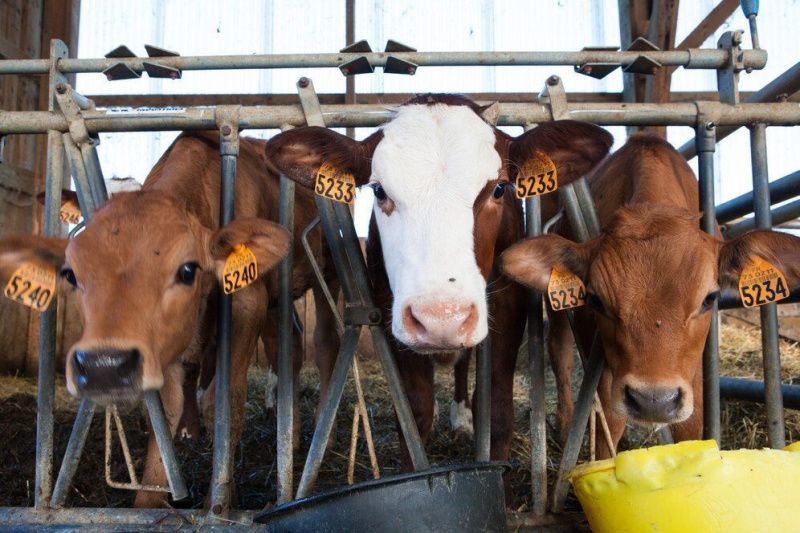Maryland Department of Agriculture Implements Restrictions on Dairy Cattle Movement Amid Avian Influenza Concerns
Source: The DairyNews
In response to confirmed outbreaks of Highly Pathogenic Avian Influenza (HPAI) in several states, including Texas, Kansas, and Michigan, the Maryland Department of Agriculture has issued an order restricting the movement of dairy cattle into Maryland from affected regions.

The outbreaks, detected by the USDA, have led to increased illness and decreased milk production rates among dairy cattle herds. The strain responsible, identified as H5N1, has been circulating in wild bird populations and appears to have been introduced to these herds by wild birds.
Although Maryland has not reported any detections of HPAI in cattle, the Department of Agriculture emphasizes the importance of maintaining robust biosecurity measures. Farmers are urged to minimize animal movements and isolate sick cattle. Furthermore, new animals should undergo a quarantine period of at least two weeks before introduction to established herds.
Maryland Agriculture Secretary Kevin Atticks reassured farmers of the Department's proactive monitoring and response efforts. The issued order serves as an additional protective measure for Maryland's agricultural community.
Additionally, while a human case of HPAI was reported in Texas, the Centers for Disease Control and Prevention (CDC) have deemed the overall human health risk assessment for H5N1 bird flu in the United States to be low.
Despite the isolated human case, the U.S. Food and Drug Administration (FDA) has affirmed the safety of the milk supply, as products undergo pasteurization before entering the market. Dairies are mandated to supply only milk from healthy animals for human consumption. The FDA strongly recommends pasteurization or heat treatment for milk from symptomatic or exposed cows intended for feeding calves or other animals.
Avian influenza, commonly known as "bird flu," poses minimal risk of transmission between birds or cattle and the general public, according to the CDC. Nonetheless, the Maryland Department of Agriculture advises poultry and livestock owners to adopt stringent biosecurity practices and promptly report any suspected cases to safeguard agricultural animals.
To support poultry and livestock owners, the Department encourages daily adherence to biosecurity measures, vigilance for signs of illness, and reporting of any concerns to facilitate prompt response and containment efforts. Commercial chicken growers and backyard flock owners can seek guidance by reaching out to MD.Birdflu@maryland.gov with their inquiries regarding the outbreak.
Although Maryland has not reported any detections of HPAI in cattle, the Department of Agriculture emphasizes the importance of maintaining robust biosecurity measures. Farmers are urged to minimize animal movements and isolate sick cattle. Furthermore, new animals should undergo a quarantine period of at least two weeks before introduction to established herds.
Maryland Agriculture Secretary Kevin Atticks reassured farmers of the Department's proactive monitoring and response efforts. The issued order serves as an additional protective measure for Maryland's agricultural community.
Additionally, while a human case of HPAI was reported in Texas, the Centers for Disease Control and Prevention (CDC) have deemed the overall human health risk assessment for H5N1 bird flu in the United States to be low.
Despite the isolated human case, the U.S. Food and Drug Administration (FDA) has affirmed the safety of the milk supply, as products undergo pasteurization before entering the market. Dairies are mandated to supply only milk from healthy animals for human consumption. The FDA strongly recommends pasteurization or heat treatment for milk from symptomatic or exposed cows intended for feeding calves or other animals.
Avian influenza, commonly known as "bird flu," poses minimal risk of transmission between birds or cattle and the general public, according to the CDC. Nonetheless, the Maryland Department of Agriculture advises poultry and livestock owners to adopt stringent biosecurity practices and promptly report any suspected cases to safeguard agricultural animals.
To support poultry and livestock owners, the Department encourages daily adherence to biosecurity measures, vigilance for signs of illness, and reporting of any concerns to facilitate prompt response and containment efforts. Commercial chicken growers and backyard flock owners can seek guidance by reaching out to MD.Birdflu@maryland.gov with their inquiries regarding the outbreak.
Key News of the Week










